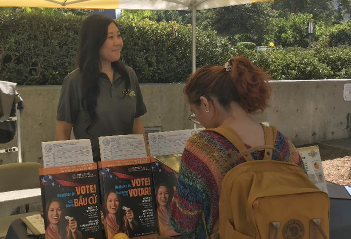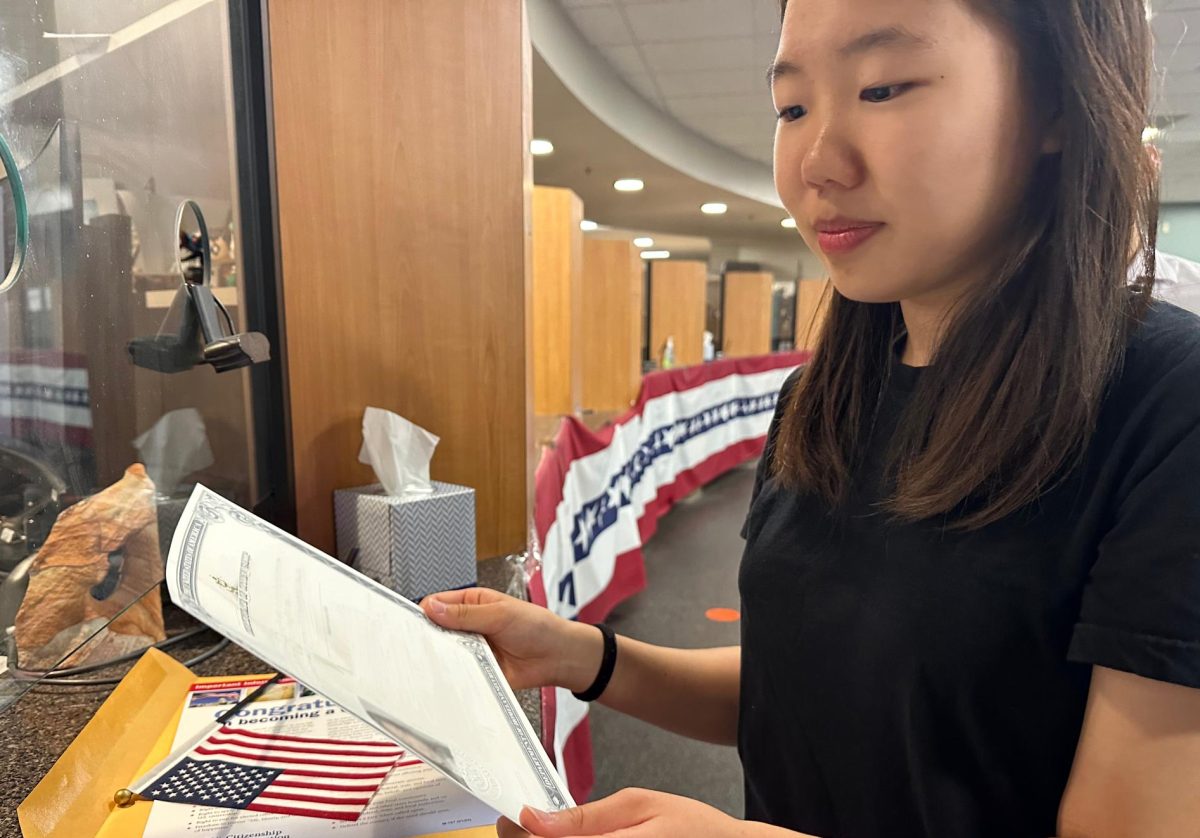The Alix Earle Effect.
According to foxnews.com, the 22-year-old social media sensation Alix Earle, with up to 4.7 million TikTok followers, has been reportedly paid between $40,000 and $70,000 to entice her followers to purchase the products of her lucrative brand partnerships — Rare Beauty Cosmetics, Tarte Cosmetics, Grubhub and White Fox Boutique.
Her flourishing financial transactions have led online users, like sophomore Jenna Forster, to cast doubt upon the integrity of products peddled by sponsored influencers like Earle.
“Influencers really only tell you what you want to hear about a certain product because they’re getting paid to promote it,” Forster said. “I tend to buy products from people who aren’t being paid to say good things and people who actually are trying the product for themselves.”
Her latest “influenced” purchase, a Too Faced coverage concealer, incentivized her to look to authentic, genuine TikTok creators for reviews reflective of the product’s quality.
“I look to social media when I’m already interested in a product, and I want to watch how it actually performs on the skin,” she said. “The products have always been how they were reviewed because I don’t buy it if it was a sponsored review.”
The marketing tactics systemized by household brands, today, skew toward the allure of influencers, who upload Instagram posts and TikTok clips advertising select products. Such a framework deviates from the marketing norms familiar to the Baby Boomer generation — print newspapers, radio and television commercials.
Senior Siena Ramirez is among those who have made financial decisions on products marketed on TIkTok.
Several of her cosmetic purchases came about from the guidance of creators under marketing contracts with well received brands, Ramirez said. For example, with TikTok influencer @stephaniedchen’s code STEPHANIE20, she purchased the NARS The Multiple blush stick for 20% off the original $39.00.
“I couldn’t justify spending that much money on a makeup product, but I saw a TikToker’s review appear on my For You page, and it ended up having a discount code,” said Ramirez, who downloaded TikTok in 2020. “I feel like buying products with discount codes makes people like me more enticed to buy from these more expensive brands.”
From the e.l.f. Halo Glow Setting Powder ($8.00) to the Dior Addict Lip Glow Oil ($40.00), influencer marketing has surpassed the traditional outlets of shopping — commercials, billboards and emails — in relevancy and social traction among Generation Z, she said.
“I don’t really see many commercials about any of the makeup products I buy anymore,” she said. “Most of the time, I find out about these through an influencer on TikTok or on the TikTok reviews brought to my For You page.”
According to fastcompany.com, content creators wield an extent of authority over their audiences of appeal to companies looking to accumulate trust with consumers.
“We aren’t always very scientific in how we decide what to believe or what we think is true,” social science and International Baccalaureate Economics teacher Robert Bradburn said. “People are looking for a personal connection.”
Before his death, YouTuber Technoblade utilized his gaming channel with 15.9 million subscribers to advertise the plush he designed in collaboration with Youtooz Collectables, demonstrating the breadth of an influencer’s marketing authority.
“I am a fan of Technoblade; I really liked his sense of humor and the way he mixed it in with his advertising campaign,” said junior Jesus Rivera, who purchased his plush in September of 2021. “Overall, it was really his personality that sold me on the plush.”
The animal plush ($35), modeled after a miniature pig, fashions a deep red coat and a gold crown stitched with multi-colored gemstones.
Alongside the plush, Rivera said he bought several sweaters in September of 2020 from Mr. Beast, a fellow YouTuber who uploads videos with expensive stunts/challenges for his 135 million subscribers, following promotions embedded within his monthly Youtube and TikTok video uploads.
“All of the things I’ve bought from influencers have been cool or at least had a good amount of quality poured into them,” he said. “Although they were advertising their own merchandise, I trusted them because I’m a fan.”
According to forbes.com, companies seek partnership with influencers for the followers who depend on the creator’s purchase recommendations, similar to firms that pay celebrities or athletes to sponsor products.
“Advertising through influencers allows brands to promote through someone that a niche community watches, engages with and trusts on a daily basis,” a December 2019 Forbes article said. “So, instead of being skeptical of a commercial or social media ad, consumers are trusting that if their influencer of choice loves the product, they will too.”
For senior Emily Zacarias, however, the products touted to her by social media creators have not always met her expectations, leading her to lose $200.
“I bought two pairs of jeans from REVICE denim after seeing a few TikTok reviews about them,” Zacarias said about her purchase. “It took months for me to receive and the sizing was off and weird. … They weren’t the best fit or quality.”
She takes precautions when purchasing influencer-promoted products to steer clear of knock-off items.
“I think the person who is promoting the product plays a valuable factor,” she said. “If an influencer is constantly doing paid partnerships with companies, it shows that is where they get their income and that they would take any promotions so they could get money.
Whereas an influencer who isn’t promoting many products so often shows a bit more credibility.”
According to forbes.com, 82% of respondents from an influence.co report agreed social media influencers should disclose any history of personal use when promoting a product to ensure an authentic review.
In July of 2021, TikTok launched the Branded content toggle, which, when activated, displays the hashtag “#ad” to disclose the user has partnered with a third party to market the product/service.
Ramire agreed that content creators with paid partnerships should preserve a sense of transparency with followers, guaranteeing the people will be placed above the payment, as TikTok has reinforced.
“In my opinion, influencers should always tell their viewers if they are promoting a product and being paid to prompt it,” she said. “It could lead to mistrust between the viewer and the influencer.”
Rivera, however, said he places his trust in the hands of his YouTube subscriptions for paid reviews.
“I think it’s OK for influencers to not tell their audiences about paid promotions,” he said. “Almost always, I feel like influencers like some part of the product and push out things they feel their audience would like.”
With influencer marketing overturning traditional forums of product advertisement, Bradburn looks forward to observing the further conjunction of influencer culture and the economic sphere.
“The thing we know is that change will always happen,” the social science teacher said. “It’s possible that influencer marketing will get a bad reputation or that it will be around for a long time, but either way, I think it’s great for students to sit back and take stock of how much time they need to spend looking for products on the market.”














